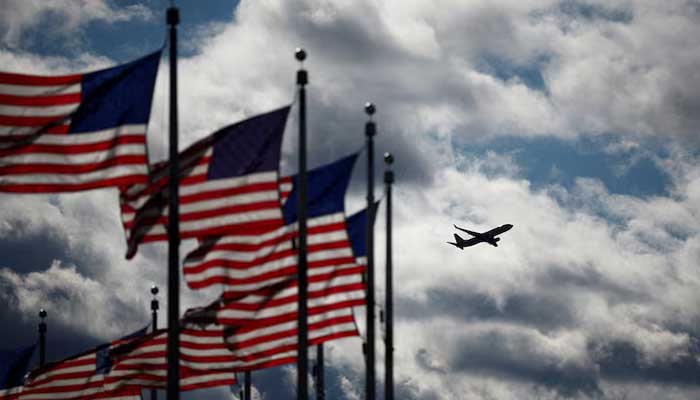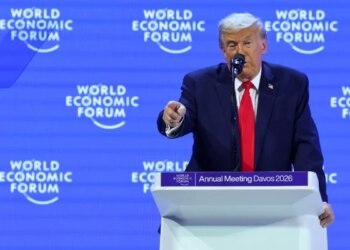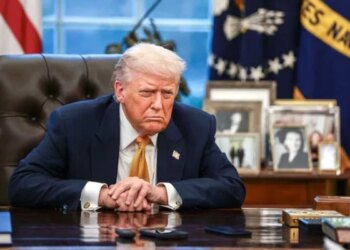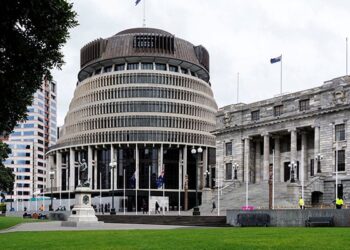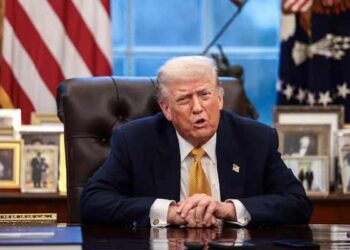Select Language:
Workers on H-1B visas from India and China faced chaos, confusion, and frustration as many had to cut short their trips and rush back to the U.S. following President Donald Trump’s announcement of increased visa fees, part of his broader immigration restrictions. Tech companies and financial institutions urgently advised employees via memos to return before the Sunday deadline at 12:01 a.m. Eastern Time (4:01 a.m. GMT) and instructed them not to leave the country.
A White House official clarified Saturday that the new fee applied only to future visa applicants, not existing visa holders or renewal applicants, easing some concerns over who was affected. Nonetheless, the announcement had already caused widespread alarm in Silicon Valley.
Several Indian nationals at San Francisco airport said they canceled their vacations out of fear they wouldn’t be allowed back once the rules went into effect. “It’s a tough choice between family and staying here,” remarked an engineer at a major tech firm, whose wife was on an Emirates flight from San Francisco to Dubai scheduled to depart at 5:05 p.m. local time Friday (12:05 a.m. GMT Saturday). The flight was delayed over three hours after some Indian passengers demanded to deplane upon hearing about the new rules or receiving employer memos. At least five were permitted to exit the plane.
A video circulating on social media showed a few passengers leaving the aircraft, though its authenticity couldn’t be independently verified. The engineer’s wife, also on an H-1B visa, decided to go to India to care for her sick mother, a decision he described as “quite tragic,” since they had built their lives in the U.S.
On social media platforms like Rednote, H-1B visa holders shared their harrowing experiences of rushing to return, sometimes just hours after arriving in other countries like China. Many equated their panic to their COVID-19 pandemic experiences, where they swiftly flew back to the U.S. to avoid impending travel bans.
One woman, posting as “Emily’s Life in NY,” shared, “My feelings are mixed — disappointment, sadness, and frustration.” She had boarded a United Airlines flight from New York to Paris but had to return to the gate and cancel her trip after her company’s lawyers instructed employees abroad to come home. She described feeling “shaken” and “insignificant” amid the sudden upheaval and shattered plans with friends, some traveling from China.
Major corporations including Microsoft, Amazon, Google, and Goldman Sachs issued urgent travel advisories to their employees, emphasizing the importance of returning before the deadline.
Since taking office in January, Trump’s administration has pursued a sweeping immigration overhaul, including attempts to restrict certain types of legal immigration. The recent move to increase fees for the H-1B visa program marks one of his most visible efforts to reshape temporary work visas, reflecting what critics call a protectionist stance. This policy shift is a significant departure from Trump’s earlier comments supporting the program for skilled foreign workers, despite opposition from some of his supporters.
Officials argue that the visa program is often exploited to suppress wages, which they say harms American workers. Supporters contend that H-1B visas are vital for filling talent shortages and maintaining U.S. competitiveness by bringing in highly skilled professionals.
In response to Trump’s proclamation, social media erupted with debates about its implications and concerns about the U.S.’s attractiveness as a global work destination. An anonymous user on Rednote likened their experience to being a “H-1B slave,” describing a hurried return from Tokyo as a “real-life ‘Fast & Furious’” moment.
The official statement from Trump’s office claimed that some employers misuse the H-1B system to artificially lower wages, creating an unfair labor market for American workers. The proclamation also allowed the Secretary of Homeland Security to grant exemptions from the fee on a case-by-case basis.
Some reports indicated that the fee could be as high as $100,000 annually for H-1B visa sponsors, though White House officials clarified that this was a one-time charge per petition, not a yearly fee. A Nvidia engineer, who has been living in the U.S. for ten years, told Reuters he had been on vacation in Japan with his family when the news broke, prompting him to quickly reschedule his return flight. “It’s surreal,” he said, “everything changes instantly.”

